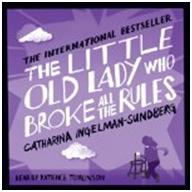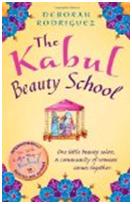
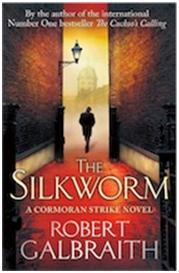 I have a small but select list of authors that are good for comfort reading. Robert Galbraith (aka J K Rowling) has become a member of this elite club. To qualify for this club, an author must write books which are good reads, good enough to be worthy of a second or even a third reading. Also, the book must have a good story, well told, and be pleasurable to read. This book ticks all the boxes. It was a good port of refuge as I struggle through The Narrow Road to the Deep North.
I have a small but select list of authors that are good for comfort reading. Robert Galbraith (aka J K Rowling) has become a member of this elite club. To qualify for this club, an author must write books which are good reads, good enough to be worthy of a second or even a third reading. Also, the book must have a good story, well told, and be pleasurable to read. This book ticks all the boxes. It was a good port of refuge as I struggle through The Narrow Road to the Deep North.
The Silkworm follows on The Cuckoo's Calling with its unlikely pair of detectives, Cormoran Strike and Robin. Lurking in the background is Matthew, Robin's cross, unimaginative and slightly jealous fiancé who Robin is shortly due to marry. Love interest between Cormoran and Robin? None, Cormoran is still in love with Caroline, the unstable beauty, Charlotte, who dumped him in The Cuckoo's Calling. And Robin does love Matthew, whatever his failings.
So what is the book about – a detective story, and like all good detective stories, there is a body and a race against time to clear the prime suspect's name. There is a theme, and this time Galbraith has set the story against the backdrop of the bizarre work of publishing.
A good novel should take you out of your comfort zone and open your eyes to a different world. I now know more about a certain type of literature that I would never consider reading, the gothic sex/horror novel. Galbraith has populated the novel with a memorable cast of characters; there is the transgender girl/boy, the grotesque literary agent, the predictable police detective, the very peculiar publisher. There two characters which really stand out for me are Leonora Quine, the wife of the victim, and the daughter, Orlando. Orlando is twenty-five, has significant learning difficulties and lives at home, sadly now just with her mum. Leonora is brilliantly drawn; a woman who can be dismissed by a few lines as thin, grey, mousy, few social graces. And yet. Leonora, seemingly totally unimaginative, focused on what she and her daughter now need for survival has to be respected. Even under the greatest pressure, she does not crumble. Arrested and imprisoned for a crime she did not commit, Orlando, her vulnerable daughter, is still her concern. There is no room for displays of grief in Leonora's world, for she is there to provide predictability and normality for her family. For years she had been the wife of Owen, a flamboyant and imaginative author. Whatever his latest mistress thought, Owen would not have left his wife and daughter. His home was where his typewriter was, and hi study and those domestic routines that allowed him to write.
Do we see something here about Rowling/Galbraith's view on relationships? That volatile, interesting relationships are not sustainable, what sustains a relationship and thereby marriage is love, concern, friendship, loyalty, affection – the qualities that are there in the relationship between Robin and Matthew but were never present between Cormoran and Charlotte?
This book is a great read.
The Silkworm (Cormoran Strike)


 Second point. The cake. It is within the gift of the state to determine what relationships can be determined as marriage. For instance, in the UK first cousins can marry. But Canon Law in the Catholic Church decrees that first cousins cannot marry. In the UK, divorced parties can remarry, in Ireland this is a comparatively recent phenomenon. And so it is with gay marriage. It is the state which decides on this matter. In Northern Ireland, the State has decreed that the only marriage recognised is between one man and one woman. To change the mind of the state is a political act. And so, the slogan "Support Gay Marriage" serves a political end, to change the mind of the state and to enable gay marriage. Should a cake bearing a political slogan, for a campaigning event be treated, in the same way as a real wedding cake or other celebratory cake that would celebrate the union between a gay couple. The gay activist was asking the baker to produce a cake with a political slogan he did not agree with. Suppose the slogan was "Support Joining the Euro" and the baker was a well known UKIP supporter. Would anyone be surprised that the bake would turn down this commission?
Second point. The cake. It is within the gift of the state to determine what relationships can be determined as marriage. For instance, in the UK first cousins can marry. But Canon Law in the Catholic Church decrees that first cousins cannot marry. In the UK, divorced parties can remarry, in Ireland this is a comparatively recent phenomenon. And so it is with gay marriage. It is the state which decides on this matter. In Northern Ireland, the State has decreed that the only marriage recognised is between one man and one woman. To change the mind of the state is a political act. And so, the slogan "Support Gay Marriage" serves a political end, to change the mind of the state and to enable gay marriage. Should a cake bearing a political slogan, for a campaigning event be treated, in the same way as a real wedding cake or other celebratory cake that would celebrate the union between a gay couple. The gay activist was asking the baker to produce a cake with a political slogan he did not agree with. Suppose the slogan was "Support Joining the Euro" and the baker was a well known UKIP supporter. Would anyone be surprised that the bake would turn down this commission?


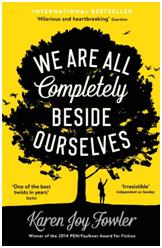 OK, so I was supposed to be listening to "The Narrow Road to the Deep North" on my daily commute. A worthy book, but definitely one for the chaps I think. I feel sort of guilty abandoning it in favour of this book. But it was such a relief to listen to a light-hearted narrator. Although I know, from reading other reviews, "we are all completely beside ourselves" is not really a light hearted romp, but is in fact a lot more serious. And I do wish I hadn't read all those reviews for I now have some expectations. But still. So far, this is a really good book to listen to while driving. This promises to be a "cracking good read".
OK, so I was supposed to be listening to "The Narrow Road to the Deep North" on my daily commute. A worthy book, but definitely one for the chaps I think. I feel sort of guilty abandoning it in favour of this book. But it was such a relief to listen to a light-hearted narrator. Although I know, from reading other reviews, "we are all completely beside ourselves" is not really a light hearted romp, but is in fact a lot more serious. And I do wish I hadn't read all those reviews for I now have some expectations. But still. So far, this is a really good book to listen to while driving. This promises to be a "cracking good read".

 I have a small but select list of authors that are good for comfort reading. Robert Galbraith (aka J K Rowling) has become a member of this elite club. To qualify for this club, an author must write books which are good reads, good enough to be worthy of a second or even a third reading. Also, the book must have a good story, well told, and be pleasurable to read. This book ticks all the boxes. It was a good port of refuge as I struggle through The Narrow Road to the Deep North.
I have a small but select list of authors that are good for comfort reading. Robert Galbraith (aka J K Rowling) has become a member of this elite club. To qualify for this club, an author must write books which are good reads, good enough to be worthy of a second or even a third reading. Also, the book must have a good story, well told, and be pleasurable to read. This book ticks all the boxes. It was a good port of refuge as I struggle through The Narrow Road to the Deep North.

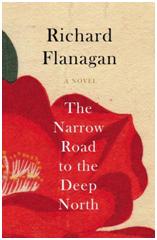 Normally I would not read (or listen to) a book like this as it is far from my comfort zone, centring as it does on the construction of the Thailand Burma railway by the Japanese combined with the romantic liaisons of the main character. And it is the winner of the man Booker Prize 2014. Somehow, the prize seems to be won by difficult books that can only be read by enthusiasts, selected by experts, and I just do not have that literary background. OK – so I have actually read some of the other books that have won, and enjoyed them – such as the Life of Pi and Mantel's Wolf Hall.
Normally I would not read (or listen to) a book like this as it is far from my comfort zone, centring as it does on the construction of the Thailand Burma railway by the Japanese combined with the romantic liaisons of the main character. And it is the winner of the man Booker Prize 2014. Somehow, the prize seems to be won by difficult books that can only be read by enthusiasts, selected by experts, and I just do not have that literary background. OK – so I have actually read some of the other books that have won, and enjoyed them – such as the Life of Pi and Mantel's Wolf Hall.

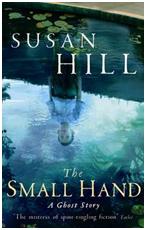 Dear reader, just a warning. If you have not read the book and/or seen the play and you wish to do so, then read no further. A ghost story needs suspense and knowing what will happen removes that suspense.
Dear reader, just a warning. If you have not read the book and/or seen the play and you wish to do so, then read no further. A ghost story needs suspense and knowing what will happen removes that suspense.

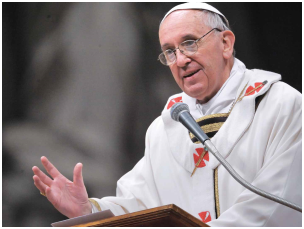 And where would Jesus be in all this? What would he say, he who turned on those trying to trap him saying “Alas for you lawyers also! You load men with intolerable burdens, and will not lift a finger to lighten the load” (Luke 11:46 – from the Gospel read on Wednesday 15th October 2014). What would Jesus say to those wishing enforce “Church teaching” in all its rigidity? Such teaching that denounces all gay relationships, bars those who are divorced and remarried from the life of the Church, or prevents couples resorting to IVF when this is the only hope of having a healthy child and demands total celibacy from a 100% male clergy? Would a modern day Gospel have Jesus dining at the home of Zechariah and his partner? Would the marriage at Cana be between a man and a woman who have both been divorced?
And where would Jesus be in all this? What would he say, he who turned on those trying to trap him saying “Alas for you lawyers also! You load men with intolerable burdens, and will not lift a finger to lighten the load” (Luke 11:46 – from the Gospel read on Wednesday 15th October 2014). What would Jesus say to those wishing enforce “Church teaching” in all its rigidity? Such teaching that denounces all gay relationships, bars those who are divorced and remarried from the life of the Church, or prevents couples resorting to IVF when this is the only hope of having a healthy child and demands total celibacy from a 100% male clergy? Would a modern day Gospel have Jesus dining at the home of Zechariah and his partner? Would the marriage at Cana be between a man and a woman who have both been divorced?
